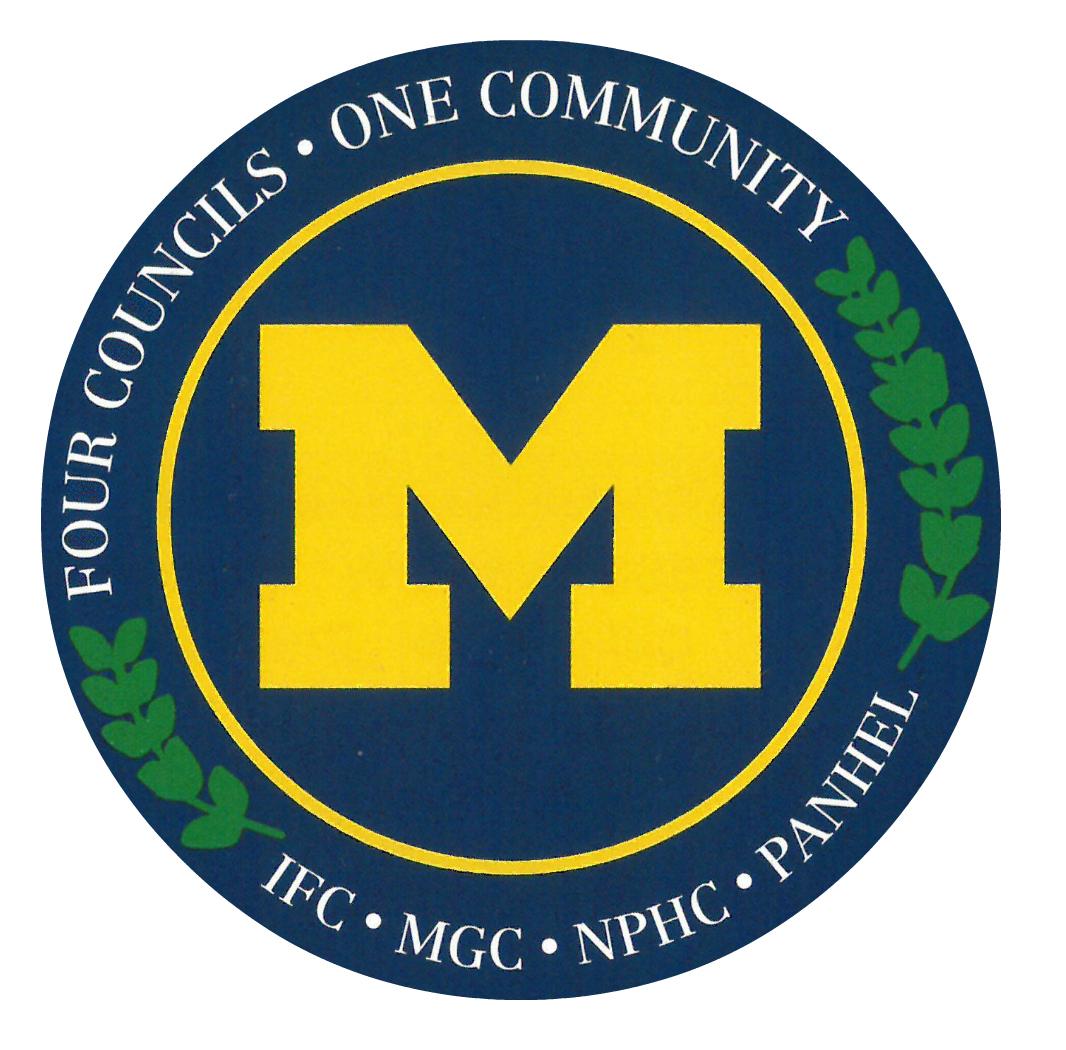Understanding the range and type of fraternities and sororities at Michigan can be confusing. There are general greek-letter (sometimes referred to as “social”), pre/professional, service, honorary, and culturally-based fraternities and sororities. They may be local (only existing at Michigan) or inter/national (with other chapters across the United States and /or in other countries.)
Fraternities and sororities at the University of Michigan can receive recognition from one or more of the following sources:
- Fraternity & Sorority Life Council Affiliation
- Interfraternity Council (IFC) - fraternities only
- Multicultural Greek Council (MGC) – multicultural fraternities and sororities
- National Pan-Hellenic Council (NPHC) – historically African American fraternities and sororities
- Panhellenic Association (Panhel) – sororities only
- National or International Governing Body/Headquarters Recognition
- Center for Campus Involvement (CCI) Recognition – available to all student groups that register and meet specified minimum requirements
All fraternity and sorority organizations affiliated with one of the four councils above are also required to be recognized by the Center for Campus Involvement
Fraternity & Sorority Life Council Affiliation:
Affiliation through Fraternity & Sorority Life falls under one of four self-governing student councils (the Interfraternity Council, the Multicultural Greek Council, the National Pan-Hellenic Council, and the Panhellenic Association). Membership in these councils is received by the processes outlined in each council’s bylaws. All of these councils are recognized and sponsored by Fraternity & Sorority Life, so voluntary or involuntary removal from a council removes the services, privileges, and oversight afforded by both Fraternity & Sorority Life and the governing council. The fraternity & sorority community Achievement Expectations Program drives organizations to succeed and receive recognition for their good work and proactive risk management efforts. The privilege of student self-governance allows students to hold each other accountable to the values they hold in common, and the councils actively work to maintain these standards. When high risk and inappropriate behavior occurs it may cause the loss of the group’s affiliation.
National/International Organization Recognition:
Campus-based fraternities and sororities are usually part of a national or international organization. Inter/national organizations grant charters by campus or location. Inter/national recognition is separate from campus-based governing council or University recognition. For serious reasons, an inter/national organization may choose to remove recognition from a chapter by revoking its charter and declaring it “closed.” While uncommon, an inter/national organization may choose to recognize a chapter even if that chapter is not recognized by a campus-based governing council or academic institution.
Center for Campus Involvement (CCI) Recognition:
Over 1200 student organizations receive University recognition through the Center for Campus Involvement (CCI). This affords them certain privileges such the ability to reserve space on campus for meetings and events. Limited oversight, advising support, and accountability measures accompany this type of recognition. Registered organizations are expected to uphold certain basic behavioral standards and will face accountability review if they are charged with violating those standards. Sanctions for violations may be educational and/or restorative in nature, and groups may lose University recognition. See Maize Pages for more information.
Professional, Service-only, and Local Organizations:
Professional (business, medical, dental, etc.), service-only, and local (non-national) fraternities and sororities also exist on campus but are not a member of one of the four campus-based governing councils within Fraternity & Sorority Life. These fraternities and sororities are usually recognized voluntary student organizations. Information can be found on Maize Pages.
When and Individual Should Be Concerned
Though not ideal, it is possible for a chapter to continue to operate in Ann Arbor without recognition from the University and a campus-based governing council. A chapter may voluntarily or involuntarily choose to not be recognized. These organizations no longer benefit from the privileges that their previous recognition afforded. These may include, but are not limited to; professional staff and alumni advising and support, proactive educational programming, leadership development, oversight of risk management efforts, service opportunities, academic support, and participation in social, intramural, and other campus and fraternity/sorority activities.
The University urges students and their parents to avoid organizations without University or campus-based governing council recognition.
Any questions regarding the recognition status of a fraternity or sorority may be directed to a staff member within Fraternity & Sorority Life (734) 936-3686.

